- Home
- Barry Eisler
Requiem for an Assassin Page 18
Requiem for an Assassin Read online
Page 18
I slowed when I reached the lot. An attendant manned a booth at the front. Behind him were eight rows of cars, parked grill to tail, each about five deep. And there was Accinelli’s Mercedes, second from the front of one of the rows.
The cars were clustered tightly to use as much of the small lot as possible. When you came for your vehicle, they’d have to move others to access it. Meaning they would ask when you were returning, so they could put short-timers up front and latecomers farther back, and thereby minimize the need to shift vehicles every time a customer arrived for his car. Wherever Accinelli was, he wasn’t planning on staying long.
I circled the block on foot, considering. There was no way I could act here. Too many people, too much light, too little control over the environment. I supposed it would have been too much to ask for Accinelli to be parked in some deserted spot in the Meadowlands.
Still, it might be useful to see which direction he came from when he returned to his car. I would have a good view of the parking lot from up to a block north on Bowery and from up to a block south, and from as far away as a block west on Prince. I checked my watch and began slowly walking a T pattern along the two streets. I figured I could keep it up for an hour before someone might find the behavior suspicious. This was New York, after all. If I’d been near a high-value terror target, the Time Warner building at Columbus Circle or the New York Stock Exchange, for example, I wouldn’t have risked loitering. But on a cold Sunday afternoon just north of Little Italy, I didn’t expect any problems.
As it happened, I didn’t have to wait long. Twenty minutes after I’d started the T pattern, as I was heading west on Prince, Accinelli made a left from Mott, just a block away and walking briskly toward me on the other side of the street. He was still in the black-and-gray polypropylene golf attire. I kept my face away from him and turned left onto Elizabeth before we reached each other. Then, when he’d passed my position, I turned around and headed north on Elizabeth, back to the BMW. There was no particular hurry now; I could track him remotely from the iPhone.
I did. I stayed behind him, hoping for a crazy, random opportunity, a toilet break at a highway rest stop, something like that, but he didn’t stop or turn off, he just headed straight home. As we proceeded, I fell farther and farther behind, and I realized he was speeding. I didn’t want to risk going more than nine miles an hour over the limit, and I estimated Accinelli was doing something like eighty-five, maybe better. Either the speeding was habitual for him, or he was in a hurry.
I tracked him to Sands Point, but didn’t follow him all the way to his house. There was no benefit to doing so. I already knew it wasn’t a good place to get to him, although if I had to choose between his office and his home, I marginally preferred the latter. With the GPS tracker in place, though, I had a feeling I’d find an opening somewhere else. It was just a question of when.
21
I HEADED BACK toward New York, thinking. The sun was beginning to get low in the sky. Stay in the city? I knew it better than Long Island, but I wanted to be close to Accinelli so I could react quickly if an opportunity presented itself.
I stopped at a gas station and found a hotel called the Andrew in the phone booth Yellow Pages. It was in Great Neck—about five miles equidistant from Accinelli’s home and office. That would work. I called the hotel and confirmed they had a room, but didn’t make a reservation. The room would probably still be available later, and I’m always more comfortable denying a potential datapoint to the opposition.
I decided to drive back into New York. I could check the bulletin boards anonymously there, and I doubted Accinelli would be going out again today. I monitored the transmitter just in case, but his car stayed put on Hilldale Lane.
Part of my mind wanted to go to Dox, but I wouldn’t let it. There was nothing I could do for him that I wasn’t doing already, and imagining his circumstances was just going to wear me down. I needed to stay sharp, keep doing what I was doing, and get the job done.
Delilah. My thoughts wanted to drift to her, too. I found myself remembering the Bel-Air, remembering it with regret, and with longing. I shook my head, irritated at my weakness. Let it go, I said to myself. Forget her. Focus.
I rubbed my eyes. I was just tired, that was all. A good night’s sleep and I’d be okay again. First the bulletin boards and then fuck it, I was done for the day.
I entered the city through the Queens Midtown Tunnel. I didn’t have any particular destination; pretty much any couple of Internet cafés would do. I went south on Park Avenue, then drifted down Broadway. It was only when I was heading west on Ninth, toward Greenwich Village, that I realized where I was going. To Midori, and Koichiro.
Oh come on, I thought. What are you doing? Don’t you have enough to deal with right now?
Yeah, but I was so close. I’d been aware of it the moment I stepped into the frigid New Jersey air outside Newark airport. And it wasn’t like I was going to ring her bell or anything. I would just…park, for a few minutes. Near her apartment on Christopher Street. I wouldn’t even get out of the car. I would just sit, and think, and feel what it felt like to be near my son. That wasn’t so much, was it? People did stranger things. They went to grave sites, and knelt in front of tombstones, and ornamented the earth above the bones with flowers, and why, if not to establish some frail communion with the shifting shadows of memory? This would be like that. Just a little while. To feel him nearby. To decant and briefly savor the vanished moment when I held that small child in my arms.
I saw an open space just east of Waverly and decided it was an omen. I parked the car and angled the side mirror so I had a view of her apartment, a seventeen-story prewar building a block away. It was cold the last time I had been here, the way it was now. I remembered everything from that last time. I remembered every word.
When he’s old enough, I’ll tell him you’re dead. That’s what I was planning to do anyway, after tonight. And you are. You really are.
And was he old enough, now? Had she already told him the father who now sat not a hundred yards away died before he was born, and so for the son had never even existed?
I sighed. It was Koichiro I wanted to think of, not Midori. I thought of a line I’d once read somewhere: You forget the things you want to remember and remember the things you want to forget.
What the hell was I doing, anyway. It was going to be dark soon. I was tired, and I wanted to be up at dawn in case Accinelli was an early riser. I should go.
But I lingered a few minutes more, watching the building, watching the windows I knew were hers, wishing I could undo the past and make a different present. Just a few tweaks, a few different decisions, and maybe I would be walking up to the doorman now, announcing myself, a present under my arm, knowing my son and his mother were expecting me and eager for my arrival.
I glanced at the iPhone screen. Accinelli’s car hadn’t moved. All right, it was time for me to go. Check the bulletin boards, a quick bite, then sleep.
I looked up and saw a couple walking down Christopher toward me on the other side of the street, a small child between them. They were all wearing hats and gloves in the cold, an Asian woman and a Caucasian man, and the child was laughing, swinging by their arms. I blinked and looked harder, then, instinct kicking in, slumped lower in my seat. It was Midori. And the child was Koichiro.
My heart started hammering. I glanced out again, conflicted, wanting to watch, wanting to hide, wanting to get out of the car, afraid to, resentful that I couldn’t, ashamed of my hesitation. And who was the white guy, walking with Midori, holding my son’s hand?
I sat there, slumped and cowering and impotent, and watched as they passed me on the other side of the street, then as they stood talking in front of Midori’s apartment. After a minute, the man leaned in and kissed her. It wasn’t a long kiss, but there was an intimacy to it, a familiarity, that enraged me. The man leaned over and said something to Koichiro, smiling. Koichiro laughed, and the man turned and walked away. Midori and
Koichiro watched him for a moment, then went into the building.
The rage drained suddenly out of me, replaced by a hard, cold clarity. The man was on foot. I could leave the car here, get out right now and follow him. I was already wearing a hat and sunglasses, so no one would remember my face. And gloves, so there wouldn’t be prints. I didn’t need any time, or any special control over the environment because nothing had to look natural. I didn’t want it to look natural, I wanted it to look like what it would be, like some faceless anonymous someone came up behind him and broke his neck and was walking away unnoticed before the body even hit the pavement.
Midori would know, of course. But what could she do? She had no way of finding me. How could she punish me? Keep me from Koichiro, maybe? Tell him I was dead? Go ahead, tell him that, if you haven’t already. I’ll show you what dead really is.
I watched him in the side-view, walking down Christopher. Maybe he was taking the subway. Follow him down the stairs, then close around the corner, no one in front of us, bam, drop him and keep moving, up another set of stairs to the street again. Back to the car and gone like a ghost five minutes after.
Okay. I got out, locked the door, put the iPhone and keys in my pocket, and headed smoothly after him. I wasn’t angry now. It didn’t feel personal. It was just a job, like always. And I knew how to do it.
He was fifty yards up the street, moving quickly in the cold. He crossed to the other side of Christopher at Seventh Avenue, heading south. My gut told me he was going to the Sheridan Square subway station. Walking more quickly, I cut over onto Grove to intercept him.
He passed right in front of me when I was ten yards from West 4th Street. I fell in behind him, closing the distance. I logged my surroundings: moderate traffic on Seventh Avenue, none at all on West 4th. A handful of pedestrians going both ways on West 4th, talking, laughing, the usual New York polyglot. Storefronts, empty. Nothing out of place. It was near twilight now, and cold. People had their heads down, they were hurrying home to dinner, or even just to get inside. Nobody was going to notice, much less remember, one man in a watch cap and shades in the midst of the vast metropolis.
Sure enough, he took the stairs at the Sheridan Square subway entrance. I rotated my neck, cracking the joints, taking a last look behind me as I hit the stairs. All clear.
I followed him down, taking the ground noiselessly along the outer edges of my boot soles, my heart pounding now. Five steps behind. Four. Three.
He turned the corner. I glanced behind. Empty. I followed him around. Empty. I took a step closer. The range was perfect. Reach for his face with one hand, the other in his lower back. Pull him onto his heels, circle the neck, arch, crack, drop, done.
I was an eye blink away, a routine electrical command, a single fired synapse. In a thousand parallel universes, I did it and it was already done.
But here, in this life, I hesitated. In my eyes, I saw an empty subway station corridor and a perfect moment to act; in my mind, I saw Koichiro, laughing at whatever the man had said to him. My breath caught in my throat and my hands froze half outstretched in front of me. I stopped, my stomach clenching, my shoulders rolling forward as though at war with my rooted feet.
I watched him move down the corridor and turn another corner. Then he was gone.
I walked back to the car on unsteady legs. I got inside, slumped in the seat, put my face in my hands, and was suddenly convulsed in tears.
Maybe the man was like a father to Koichiro, or would be. Maybe he was as close to a father as my son would ever know. And I was about to take that away. Because I could? Because it would numb some hurt part of me?
I stayed there for a long time, feeling confused and helpless and miserable. Finally I got it under control. I fired up the car and drove away and I didn’t look back.
22
I FOUND A COUPLE Internet cafés and checked the bulletin boards. Nothing on either. Then, on foolish impulse, I Googled: “Jan Jannick bicycle Palo Alto.” The first hit was a front-page article in the Palo Alto Daily News. A bizarre accident, the article reported. Bicycle. Night. Rain. A tragedy. Jannick was survived by a wife and two small children, a boy and girl, all of whom were being cared for by relatives during this difficult time.
I purged the browser and rubbed my eyes. No choice, I reminded myself. It was Jannick or Dox. Jannick or Dox.
I stopped at a place called Katz’s Delicatessen at Houston and Ludlow. The food was good, but I ate with neither hunger nor relish, only to keep my body going. Finally, I drove out to Great Neck and checked in at the Andrew, where I took the hottest bath I could stand, trying to boil the tension out of myself.
I lay in bed afterward, exhausted but unable to sleep. A thousand fragmented images and voices pressed close inside my head, each a hungry demon, gnawing at my mind. Then, in the midst of that mental cacophony, I heard a single voice, Delilah’s, telling me about choice, how it was within me to make the right one, that it was my choices that would make me who and what I am. I seized on her voice, followed it, and it began to drown out the others.
And then, for the second time that evening, my eyes filled with tears, this time at the tenuous, terrifying hope that maybe Delilah had been right. That, improbably, even accidentally, I had proved her right. And that, if I could do it once, I could do it another time. And another after that.
You can, I told myself, again and again, my lips forming the words like a prayer, an incantation. You can. You can. And, breathing that silent mantra, clutching it as though it was my last and only hope, finally, fitfully, I slept.
23
I GOT UP AT five the next morning. The first thing I did was check the transmitter. Accinelli’s car hadn’t moved—it was still at his house in Sands Point. I showered, shaved, and got dressed, then went down to the restaurant for breakfast. I kept the iPhone open in front of me while I ate, in case Accinelli moved earlier than I thought likely.
At six o’clock, I started driving circuits on 25A and the Long Island Expressway between Mineola and Sands Point. At six-thirty, the transmitter started moving. I wasn’t surprised. Accinelli was a self-made man, with all the ambition self-made success implied. I hadn’t expected him to show up and punch a time clock at nine.
I watched on the iPhone as he came down Searingtown Road, then fell in behind him on the LIE. Traffic was already thick in the other direction, toward New York, and I supposed one of the benefits of living in Sands Point and working in Mineola was that doing so offered him a reverse commute.
As I followed him I hoped, but didn’t really expect, that he might pull over at a rest stop, or a favorite diner, or some other place where I might find an opportunistic few minutes alone with him. But he didn’t. From the LIE, he went south on the Northern State Parkway, then onto East Jericho. By the numbers, from home to the office. I went past as he waved to the guard in front of the parking lot, then watched him drive inside.
I picked up some sandwiches and fruit at a supermarket and went back to the hotel room. If Accinelli didn’t go anywhere until he was done at work, it was apt to be a long day of watching and waiting.
But at just before eleven o’clock, he moved. I went to the car, watching on the iPhone as he headed west on the LIE, toward New York. On the Brooklyn-Queens Expressway, I came close enough to spot his car, and stayed behind him across the Williamsburg Bridge. Downtown again. Interesting.
I followed him onto Delancey, keeping several cars between us. Where are you going? I wondered. Same place as yesterday?
I expected him to go right on Bowery and park at the lot I’d seen him use the day before. Instead, he continued onto Kenmare, then made a left on Mott, going the opposite direction from where I’d spotted him yesterday. Then right on Broome, right on Crosby, and into a parking lot between Spring and Prince. And all at once it came together for me. I knew why he was here.
I drove past the lot, made a right onto Houston, then another right onto Mott, the same block I’d seen him turn off yesterday. I paused
at the corner of Mott and Prince, but didn’t see him coming. If I was wrong, I had already lost him, and wouldn’t be able to reacquire him until he was moving in the car again. But I knew I wasn’t wrong. The signs had all been there; I was just too distracted by thoughts of Midori and Koichiro to put them together.
Accinelli had a mistress.
Why had he still been in his golf clothes when I saw him yesterday? Why was he hurrying, first on foot, then on the highway? And he hadn’t been shopping here—he was carrying no packages.
I pictured it: he tells his wife he’ll be golfing at the club, and he will be, too, because it’s important that he’s seen there, that his buddies will unintentionally vouch for him, unwittingly provide an alibi. But he’s only staying for nine holes, not eighteen. The difference creates a two-hour window for him. He wants to make the most of it, so he doesn’t even change his clothes. In fact, he wants to stay in the clothes, wants to be wearing them when he gets home later. And then he stays too long, and hurries to return before his wife gets suspicious.
And why the different parking lot today? Everything else I’d seen about Accinelli indicated he was comfortable with patterns—foolishly comfortable, in my opinion, because even aside from the fact that Hilger wanted him dead, his wealth and stature made him an inviting target for kidnapping. But today, he’d practically driven right past the lot on Bowery, in favor of another that wasn’t a half-mile away. Why the change, and why only now? Could it be because he didn’t want to be seen by the same attendant every time he came here?
I’d come across this kind of thing before. When a large part of your job involves following people surreptitiously, discovering patterns you can exploit, you see a lot of behavior that goes unnoticed by the outside world. Drugs. Prostitution. Gambling. Affairs. Closet homosexuality. Addictions and compulsions, cravings and lust. The real world, the id, the dark constants of our nature.

 All the Devils
All the Devils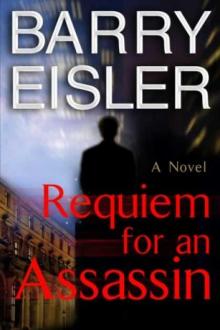 Requiem for an Assassin
Requiem for an Assassin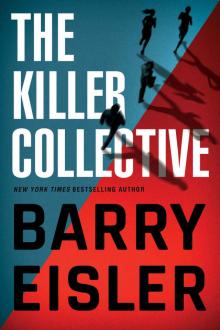 The Killer Collective
The Killer Collective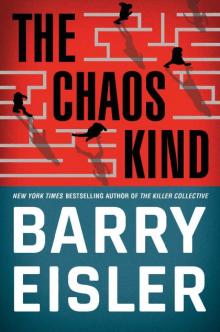 The Chaos Kind
The Chaos Kind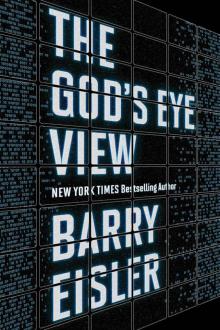 The God's Eye View
The God's Eye View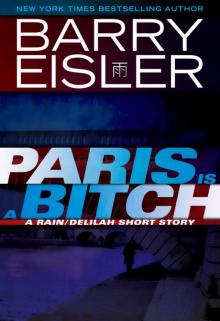 Paris is a Bitch
Paris is a Bitch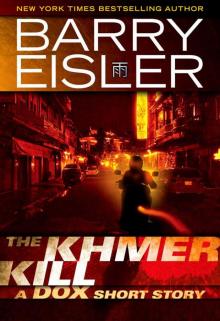 The Khmer Kill: A Dox Short Story (Kindle Single)
The Khmer Kill: A Dox Short Story (Kindle Single)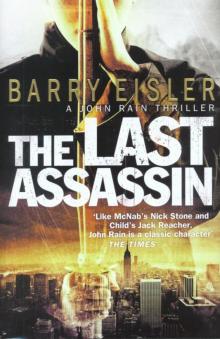 The Last Assassin
The Last Assassin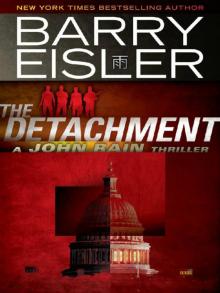 The Detachment
The Detachment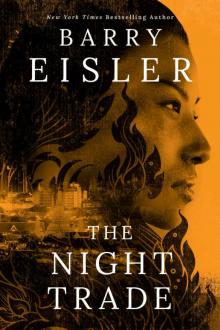 The Night Trade (A Livia Lone Novel Book 2)
The Night Trade (A Livia Lone Novel Book 2)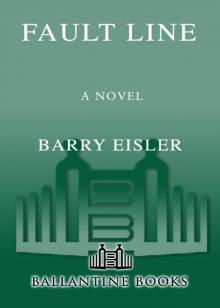 Fault Line
Fault Line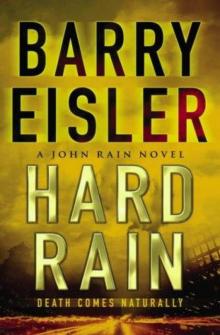 Hard Rain
Hard Rain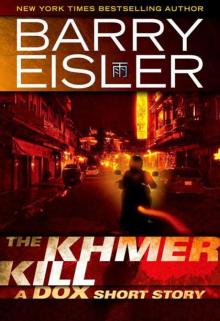 The Khmer Kill_A Dox Short Story
The Khmer Kill_A Dox Short Story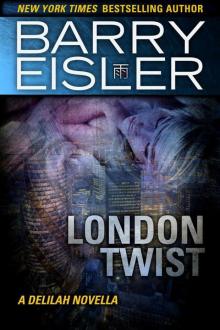 London Twist: A Delilah Novella
London Twist: A Delilah Novella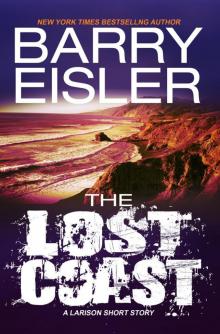 The Lost Coast
The Lost Coast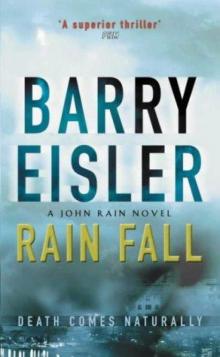 Rain Fall
Rain Fall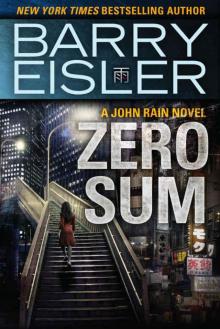 Zero Sum
Zero Sum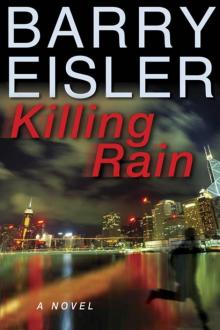 Killing Rain
Killing Rain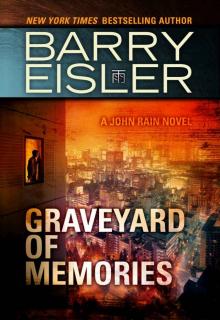 John Rain 08: Graveyard of Memories
John Rain 08: Graveyard of Memories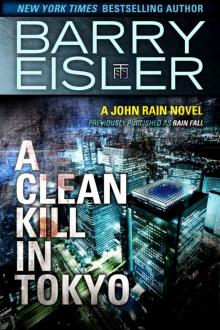 A Clean Kill in Tokyo (previously published as Rain Fall)
A Clean Kill in Tokyo (previously published as Rain Fall) Inside Out: A novel
Inside Out: A novel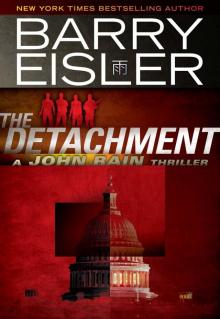 John Rain 07 - The Detachment
John Rain 07 - The Detachment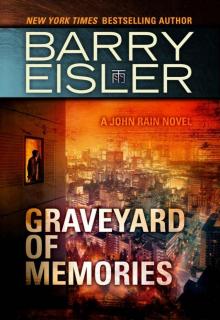 Graveyard of Memories
Graveyard of Memories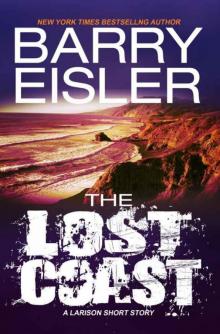 The Lost Coast -- A Larison Short Story
The Lost Coast -- A Larison Short Story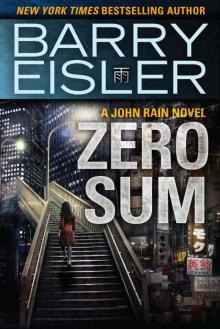 Zero Sum (A John Rain Novel)
Zero Sum (A John Rain Novel)